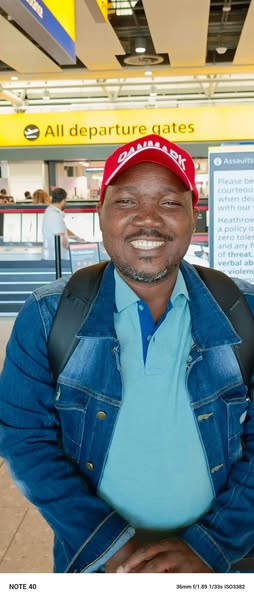Calls For Action Against Joshua Blayee
In a bold statement issued Friday, the Human Rights Monitor of the Liberia Annual Conference of The United Methodist Church (UMC) sharply condemned former warlord-turned-evangelist Joshua Milton Blayee—infamously known as “General Butt Naked”—for making threatening remarks against Montserrado County District #10 Representative Yekeh Kolubah.
The UMC’s Human Rights Director, Jefferson B. Knight, described Blayee’s comments as “a grave threat to Liberia’s fragile peace and national stability,” warning that such behavior undermines constitutional rights and violates the principles of post-war reconciliation that Liberia has been striving to uphold.
Former Warlord Turned Provocateur?
Blayee, who gained global notoriety for his brutal role during Liberia’s civil war, has in recent years publicly claimed to have turned a new leaf through Christianity and reconciliation advocacy. However, his recent incendiary remarks toward Representative Kolubah—a controversial yet democratically elected lawmaker—have prompted widespread concern.
Knight emphasized that Blayee holds no position within the country’s security structure and has no legal authority to issue threats of violence or incite fear. “We wish to clarify that Joshua Blayee is not the head of Liberia’s National Security and has no official authority to issue such threats or engage in wartime tactics that threaten national stability,” the UMC official said.
The exact content and context of Blayee’s threats have not been made publicly available, but reports suggest that his statements bordered on incitement and invoked wartime rhetoric—an alarming development in a nation still healing from the scars of its 14-year civil conflict.
A Threat to Constitutional Order
The UMC statement invoked constitutional guarantees of free speech, freedom of movement, and personal security for all Liberians. “Every Liberian citizen is guaranteed the fundamental rights to freedom of movement and speech under the Liberian Constitution. These rights are essential to our democracy and must be protected at all costs,” Knight declared.
The targeting of Representative Kolubah—a polarizing political figure known for his outspoken criticism of past administrations—further complicates the situation. While Kolubah’s rhetoric has at times drawn controversy, many view him as an essential voice within the opposition, and threats against him are being interpreted as attempts to silence dissent.
The UMC’s intervention highlights a deepening concern within civil society that former war actors, some of whom have never faced justice, continue to exert undue influence in Liberia’s political discourse. This resurgence of wartime personas in public affairs, particularly when accompanied by violence-laced threats, risks eroding hard-won democratic gains.
Calls for Accountability
The UMC is now calling on the Liberian government to act. “We call on the relevant authorities to summon Mr. Blayee for questioning and to hold him accountable for his actions,” Knight asserted. This call is echoed by growing voices in civil society who believe the country cannot afford to allow such figures to operate with impunity.
Knight’s appeal adds weight to ongoing demands for justice and accountability in Liberia. While the country has made symbolic steps toward post-war reconciliation, such as the Truth and Reconciliation Commission (TRC), implementation of its recommendations—particularly regarding prosecution—remains largely unfulfilled.
Legal experts say that issuing threats of violence is not just morally reprehensible but could constitute a criminal offense under Liberia’s penal code. Whether the government will take action remains to be seen, especially given the sensitive political context.
Safeguarding the Peace
The UMC’s statement closed with a call for unity among Liberians and stakeholders to resist intimidation and recommit to the rule of law. “Let us remember that Liberia’s progress depends on our collective respect for the rights and dignity of all its citizens,” Knight said, urging that “those who threaten our peace be held accountable.”
This moment serves as a litmus test for Liberia’s post-conflict resilience. As elections approach and political tensions rise, the country faces the dual challenge of safeguarding free expression while deterring incitement and unlawful threats.
The church’s intervention is a reminder that peace is not the absence of conflict, but the presence of justice and mutual respect. By speaking out, the United Methodist Church joins a broader movement of Liberian voices determined to ensure that the past is not repeated—and that democratic freedoms are not extinguished by the shadows of former warlords.
A National Crossroads
Liberia now stands at a crossroads: either confront the dangerous normalization of violent rhetoric or risk sliding backward into a cycle of fear and instability. The Human Rights Monitor’s clear stance affirms the belief that silence in the face of threats is complicity—and that civic and religious institutions must lead the charge in defending democratic principles.
As pressure mounts on the government to act, many will be watching whether words are matched by deeds.



